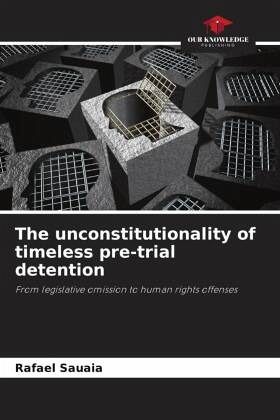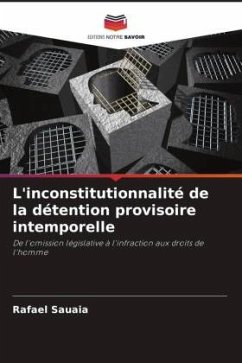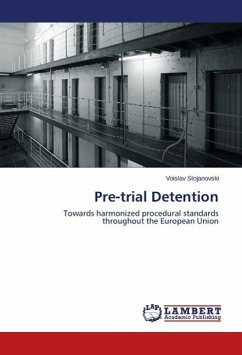
The unconstitutionality of timeless pre-trial detention
From legislative omission to human rights offenses
Versandkostenfrei!
Versandfertig in 6-10 Tagen
43,99 €
inkl. MwSt.

PAYBACK Punkte
22 °P sammeln!
In the midst of national discussions about the trivialization of imprisonment and the premature incarceration of a specific fraction of society, the work addresses the institute of pre-trial detention, as a criminal procedural precaution, and the repercussions of the legislative omission regarding its duration, which inevitably culminates in an offense against the human rights of those subjected to criminal prosecution. The problem begins with the necessary differentiation between prison sentences and pre-trial detention (provisional in nature), and the incoherence of a time limit laid down by...
In the midst of national discussions about the trivialization of imprisonment and the premature incarceration of a specific fraction of society, the work addresses the institute of pre-trial detention, as a criminal procedural precaution, and the repercussions of the legislative omission regarding its duration, which inevitably culminates in an offense against the human rights of those subjected to criminal prosecution. The problem begins with the necessary differentiation between prison sentences and pre-trial detention (provisional in nature), and the incoherence of a time limit laid down by law only for that which only exists after a final and unappealable criminal sentence has been passed. To highlight the latent contradiction, the author delves into international examples (Portugal, Italy, Germany, etc.) to highlight the state's intangible responsibility to regulate pre-trial detention, under penalty of institutionalizing an illegitimate punitive instrument that violates human rights, bordering on the enmity of those who usually suffer from presumed guilt (rather than innocence) and suffer the neglect of public institutions in the most deplorable way: in prison.












